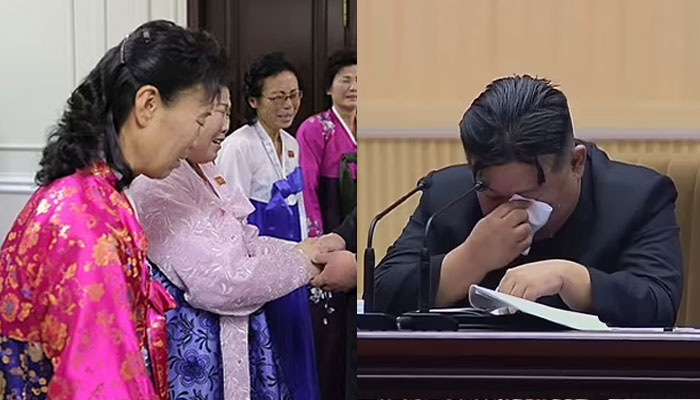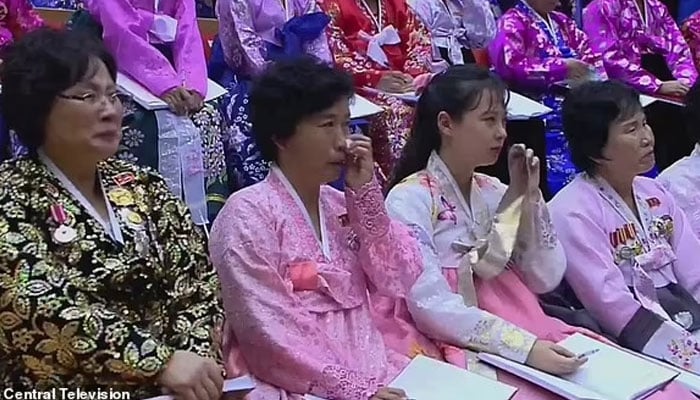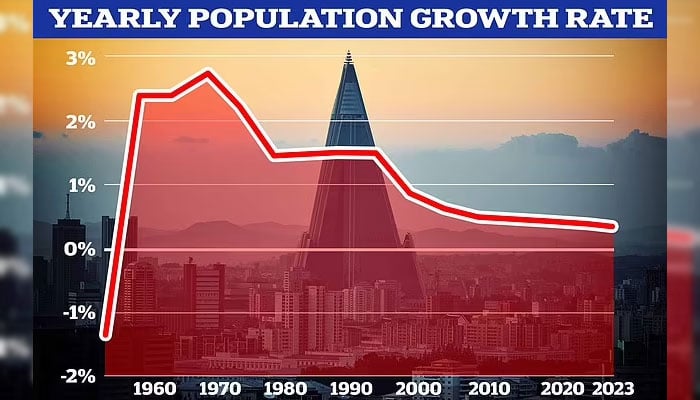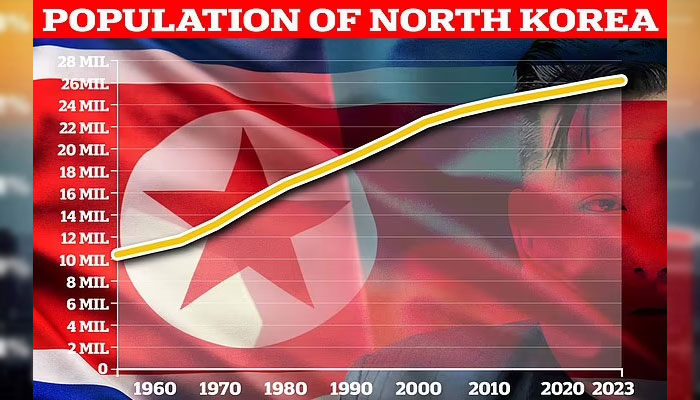Baby Boom: North Korea's Kim Jong Un tearfully urges women for a population explosion
The speech was made during North Korea's first National Mothers' Meeting in 11 years held in Pyongyang,
December 05, 2023

In an emotional appeal, North Korean dictator Kim Jong Un shed tears as he implored thousands of women to contribute to the nation's dwindling birth rate.
During the first National Mothers' Meeting in 11 years held in Pyongyang, Kim emphasised the importance of preventing a decline in birth rates, framing it as a collective responsibility to strengthen national power.
The event, attended by women adorned in traditional attire, witnessed a mix of emotions as Kim Jong Un, flanked by male officials, urged mothers to instil communist values in their children.
Despite the sombre tone, images released by North Korea's state media also captured moments of applause and cheering from the adoring crowd.

Addressing the mothers as "Dear Mothers," Kim Jong Un emphasised the pivotal role of mothers in tackling social tasks and promoting the values of the communist party.
The plea comes against the backdrop of concerns about North Korea's declining birth rate, with limited available statistics making it challenging to assess population trends accurately.
South Korea's government estimates suggest a continuous decline in North Korea's fertility rate over the past decade, impacting the socialist country's reliance on mobilised labour for its economy.
Kim's call echoes earlier efforts by the DPRK to promote population growth, with officials perceiving a need to counterbalance South Korea's larger population.

The decline in fertility has been attributed to various factors, including urbanisation, delayed marriage, and women's participation in the workforce.

While North Korea provides benefits for families with three or more children, challenges persist in the face of economic difficulties and global isolation.
Experts highlight the unique societal challenges influencing North Korea's fertility decline, noting Kim Jong Un's public appearances with his daughter, Ju Ae, as potential efforts to encourage family values.
Despite the concerns, North Korea's fertility rate remains higher than some neighbouring countries facing similar demographic challenges.









